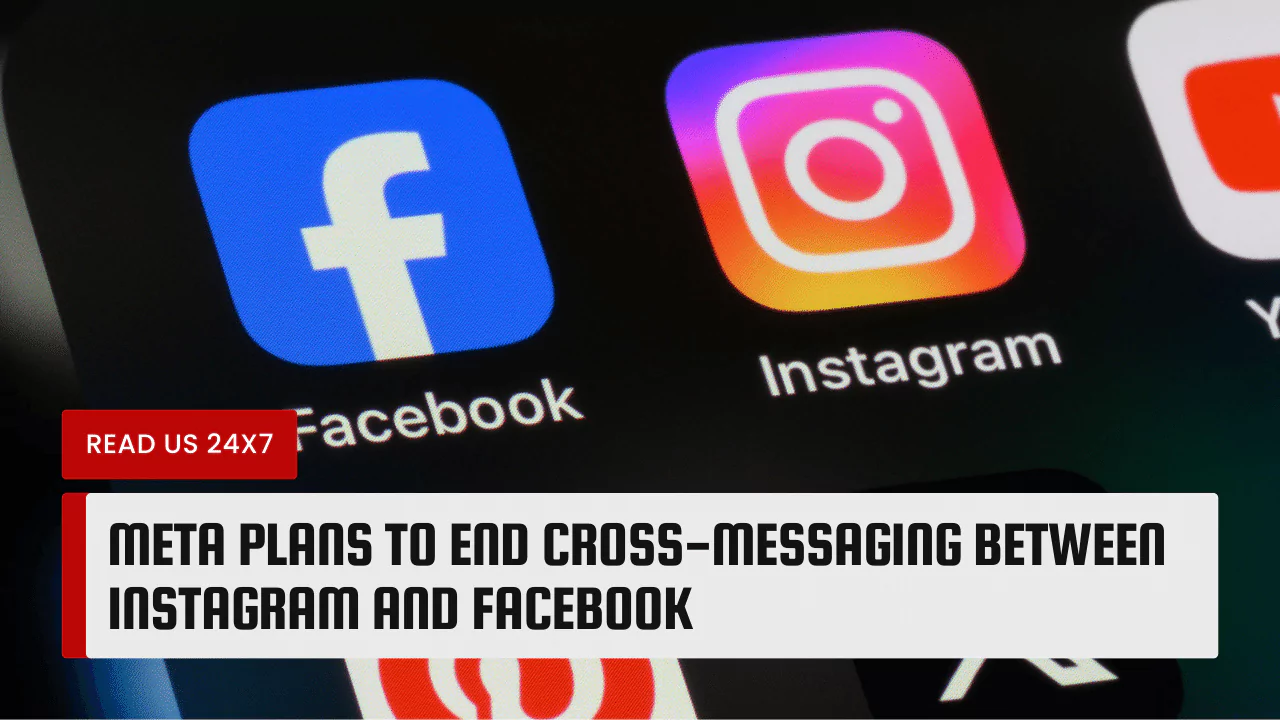Meta, the parent company of Facebook and Instagram, has announced that it will end the cross-messaging feature between the two social media platforms later this year. The feature, which was launched in 2020, allows users to send messages and make calls to each other regardless of which app they are using. However, the feature is expected to be discontinued in mid-December 2023, leaving users unable to chat with their Facebook friends on Instagram and vice-versa.
This article will explore the reasons, impacts, and responses to this decision, as well as the plans and alternatives for cross-platform messaging.
Meta to End Cross-Messaging Between Instagram and Facebook
Meta has quietly updated its support pages, announcing the discontinuation of cross-messaging between Instagram and Facebook. The shutdown is scheduled for mid-December, with no specified date. Existing Instagram chats will become read-only, and the move comes three years after the introduction of cross-platform messaging. Meta has not provided a specific reason for this decision, and it remains unclear if it is related to regulatory requirements or other developments. Additionally, Meta had earlier announced plans for end-to-end encryption for Messenger users, with a potential extension to Instagram DMs. The company is also overhauling its account center for greater user control, following a directive from the German antitrust body.
Impact of Discontinuing Cross-Messaging
The discontinuation of the cross-messaging feature between Instagram and Facebook Messenger will have several impacts on the users and the platforms. One of the most obvious impacts is that users will no longer be able to chat with their Facebook friends on Instagram, and vice-versa unless they have both apps installed on their devices. This may reduce the convenience and functionality of the apps, as well as user engagement and retention. Users may also lose some of the messages and contacts they have on the apps, as the chat threads will become read-only and inaccessible after mid-December.
Another impact of the discontinuation of the cross-messaging feature is that it may affect the privacy and data-sharing policies of the platforms. Currently, users can choose whether to allow messages from Facebook friends on Instagram or not, as well as whether to share their account information and activity across the apps. However, once the feature is removed, users may have less control over their privacy and data, as they may have to use separate apps with different settings and permissions. Moreover, Meta may still collect and use the data from both apps for its purposes, such as advertising and personalization.
Response from Users and Regulators
The response from the users and regulators to the decision to end the cross-messaging feature between Instagram and Facebook Messenger has been mostly negative. Many users have expressed their dissatisfaction and frustration with the change, as they have enjoyed and relied on the feature for their communication and socialization. Some users have also questioned the rationale and motive behind the change, as they suspect that it may be a way for Meta to avoid regulation and accountability, or to force users to use more of its apps and services.
On the other hand, some regulators have welcomed the change, as they see it as a step towards reducing Meta’s power and influence in the social media market. For instance, the European Union has recently proposed a new regulation that would classify Messenger as a core platform service, along with Facebook, Instagram, and WhatsApp, and subject it to stricter rules and obligations, such as interoperability, data portability, and transparency. The regulation aims to prevent Meta from leveraging its dominance and harming the competition and the consumers in the digital sector.
Future Plans and Alternatives
Despite the decision to end the cross-messaging feature between Instagram and Facebook Messenger, Meta has not given up on its ambition to create a unified and integrated messaging system across its apps. The company has recently announced that it is working on a new service called Threads, which will allow users to communicate and share content with their close friends and family across Facebook, Instagram, and WhatsApp. The service will also include features such as voice and video calls, stickers, filters, and encryption. Meta has not revealed the launch date or the availability of Threads, but it is expected to be a replacement for the cross-messaging feature.
However, if users are not interested in using Threads or any of Meta’s apps, they can also look for alternatives for cross-platform messaging between Facebook and Instagram. One of the most popular and widely used alternatives is Signal, a secure and private messaging app that allows users to send messages, make calls, and share media with anyone who has the app installed on their device. Signal also supports group chats, voice messages, and disappearing messages, and does not collect or share any user data. Another alternative is Telegram, a cloud-based messaging app that offers similar features as Signal, as well as channels, bots, and themes. Telegram also claims to be fast, secure, and reliable and does not sell or share any user data.


